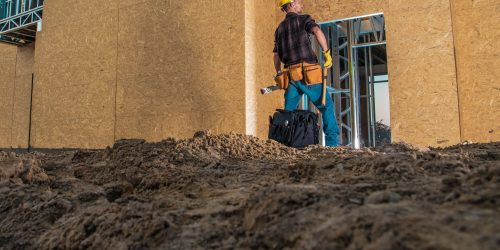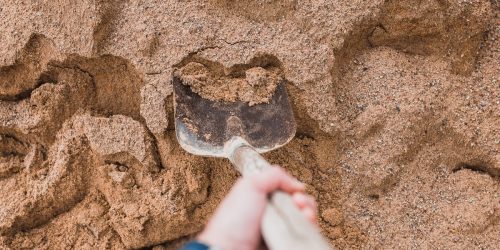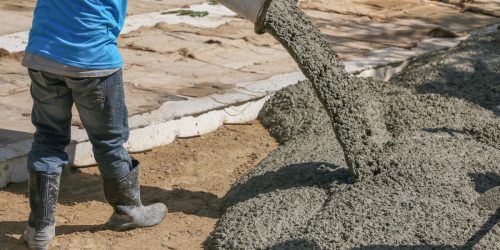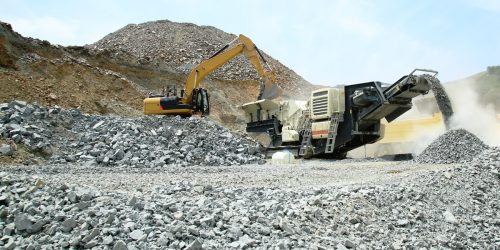
When it comes to efficient construction, the strength and integrity of the structure rests on the quality of the materials used. A mainstay of these materials, often overlooked for their abundant usage, is construction aggregate. A good understanding of the importance and use of adequate construction aggregate can significantly impact the structural integrity of the built environment.
What Is Construction Aggregate, And Why Is It Essential?
Construction aggregate, or simply ‘aggregate,’ is a broad category of coarse- to medium-grained particulate material used in construction, including sand, gravel, crushed stone, slag, and recycled concrete. These materials serve as reinforcement to add strength to the overall composite material.
Fundamental to any operation pertinent to the building and construction industry is understanding what construction aggregate is and its role. The moment any project begins, the selection, use, placement, and manipulation of totals become central to the overall success of the construction.
But why are aggregates essential?
Aggregates play an integral role in providing stability and aiding in load-bearing in construction because they distribute forces across an extensive network of particles. Further, the right choice of aggregate can stabilize the project’s base, making it sturdy enough to support heavy weights.
Other essential reasons are:
- Enhancement of Structural Integrity
- Economically Efficient
- Sustainability Option
- Aesthetics and Design
So why is aggregate indispensable?
The answer is threefold: strength, durability, and economy. Construction aggregates form the bulk of cement and asphalt, reducing cost without compromising integrity. Also, aggregates spawn vital frictional resistance in highway surfacing. Like the unseen part of the iceberg, aggregate forms most of a construction project’s volume, unassumingly bearing the weight of our structures.

Aggregate Products And Their Varieties
With an extensive array of aggregate products available, decision-making can seem overwhelming. The excellent news is choice begets customization, which leads to optimal construction outcomes. So, let’s take a closer look at some critical aggregate products and their utilities:
- Coarse Aggregates: Predominantly crushed rock, crude aggregate forms the backbone of concrete and asphalt concrete. It’s distinguished by larger particulate sizes ranging from slag and granite to limestone, bestowing structural integrity and strength in many construction projects.
- Fine Aggregates: Think sand and smaller particulate materials used in construction, critical in mortar and concrete mixes. These help ensure excellent workability and finishing properties.
- Recycled Concrete Aggregates: Embodying sustainability, Recycled Concrete Aggregates are crushed, reclaimed concrete repurposed in various stages of construction, including roadways, parking lots, and even drainage solutions.
- Specialty Aggregates: These cover a more comprehensive range of aggregates catering to specific applications, e.g., water filtration and purification solutions or reinforcement tasks in retaining walls.
Grading aggregate revolves around two aspects: size and quality. For instance, the U.S. Interstate Highway System necessitates strictly graded, high-quality construction aggregates compared to lower-traveled roadways.
The Dynamics Of A Good Construction Aggregate
A deeper understanding of the dynamics of suitable construction aggregates enables engineers, architects, builders, and contractors to make informed decisions, ensuring their projects’ long-term stability, integrity, and cost-effectiveness.
1. Size and Texture
Suitable aggregates should have the right size, shape, and texture. Uniformly graded aggregates produce more reliable results and add to the structural integrity of the construction. Irregularly shaped or rough textured aggregates may yield stronger concretes, owing to the increased surface area for bonding.

2. Durability and Strength
Only the most durable and sturdy stones are selected as good-quality aggregates. These stones must possess the ability to withstand stress, pressure, and various weather conditions without changing shape, crumbling, or decomposing.
3. Chemical Inertness
Suitable aggregates are chemically inert, meaning they resist chemical reactions that could lead to deterioration or damage to the construction. This property enhances the structure’s longevity, keeping it sound and intact for many years.
4. Gradation
Gradation refers to the range of particle sizes within an aggregate and how they relate. Appropriately graded aggregates are more likely to achieve the final product’s desired workability, strength, and durability.
To ensure a well-graded aggregate, consider the following factors:
- Particle size distribution: A balanced and uniform distribution of differently sized particles prevents settling or segregation and contributes to better bonding within the matrix.
- Void ratio: A lower void ratio, meaning fewer empty spaces between particles, helps attain higher strength and adds to the overall quality of the construction.
5. Density
The density of aggregates is essential in guiding the overall weight and sustainability of the construction project.
- Lower-density aggregates (e.g., expanded shale, clay, or slate) are ideal for lightweight concrete applications.
- Higher-density aggregates (e.g., basalt, granite, or quartzite) contribute to the strength and stiffness of the structure.
6. Chemical Compatibility
Aggregates must be chemically inert and resistant to harmful chemical reactions that could cause deterioration or damage. They should withstand common chemical exposures encountered in the environment, such as salt, sulfates, acids, and alkalis.
The Impacts Of A Good Aggregate On Structural Integrity
Aggregates play a crucial role in determining the structural integrity of a construction. They provide volume at a low cost, occupying approximately 60-75% of concrete volume. Hence, the characteristics of construction aggregate significantly affect the properties and the performance of the resulting concrete.
1. Increased Tensile Strength
Using suitable aggregate can increase the structure’s tensile strength. Tensile strength is the resistance of the material to breaking under tension. High-quality aggregate embedded within the concrete matrix helps distribute the load across the design, reducing the risk of fractures or splits.
2. Cost-efficiency
Structural integrity doesn’t always mean more substantial costs. Since aggregates comprise a significant portion of the construction materials, utilizing efficient, high-quality aggregate can keep construction costs reasonable while enhancing structural integrity.
3. Improved Durability
A well-selected aggregate can improve not only the strength but also the durability of a structure. Buildings constructed with high-quality total can withstand the elements and time, retaining their original condition for longer.
Let’s build with purpose!
A Key Ingredient For Strength In Construction
Constructing a building without the proper construction aggregate can be compared to assembling a jigsaw puzzle without its pieces. Concrete aggregate, both coarse and fine variants, isn’t just another material used in construction. It’s the skeleton that lends strength and durability to a building.
What sets concrete aggregates apart? Here’s the secret: It’s not just about bulk; it’s about synergy.
Let’s unmask this dynamic component:
- Binding All Together: Aggregates join hands with cement to form concrete, a composite material that’s both strong and cost-effective. They constitute 60-75% of concrete’s volume, making them economical and indispensable.
- Reducing Shrinkage And Cracking: With their low thermal expansion, aggregates limit shrinkage and cracking in concrete structures, an essential feature for enduring constructions.
- Providing Compressive Strength: Coarse aggregates bear the bulk of compressive loading, offering immense strength to the overall structure.
- Enhancing Workability: Fine aggregates improve the workability of the concrete mix, facilitating better finishing and casting.
How To Use Aggregates In Construction For Optimum Results

Using aggregates in construction is an art, and acing that art will elevate your project to new heights. Explore these essential tips and expert advice to ensure superior results:
- Select The Right Type: Consider your construction’s purpose, environment, and stressors when choosing aggregate types. Opt for coarse, crushed stone for heavy-duty buildings like highways and fine-grade sand for mortar and finishing.
- Sourcing Matters: Find a reliable quarry or mine to source high-quality material. Suitable aggregate translates to sturdy structures; a dependable quarry helps maintain consistent material supplies.
- Customize The Mix: Fine-tune the aggregate-cement-water ratio to suit your needs. A well-balanced mix enhances workability, durability, and strength—critical factors in the success of any construction project.
- Keep An Eye On Moisture: Aggregate water content affects concrete’s setting time, so adjust your mix accordingly. Too much water weakens the structure, while scant hydration impedes proper bonding. Strike the right balance!
- Don’t Skimp On Testing: Periodic Quality Control (QC) tests at various stages ensure consistency and detect potential issues. Regular tests are a worthy investment. Foundations may outlive the structure, but the aggregates help them stand the test of time.
In conclusion, using suitable construction aggregate significantly influences the structural integrity of your project. Choosing the proper characteristics of the total, understanding their impacts, and applying them appropriately in construction paves the way for sturdy, steadfast structures built to last a lifetime.
Indeed, the unassuming aggregate might be the cornerstone of tomorrow’s durable, sustainable systems. Contact us at Abraham Sand & Rock (ASR Materials) today if you need construction aggregate in Miami or the surrounding areas.
LOOKING FOR THE BEST SUPPLIER IN SOUTH FLORIDA?
YOU FOUND US, ASR MATERIALS.





